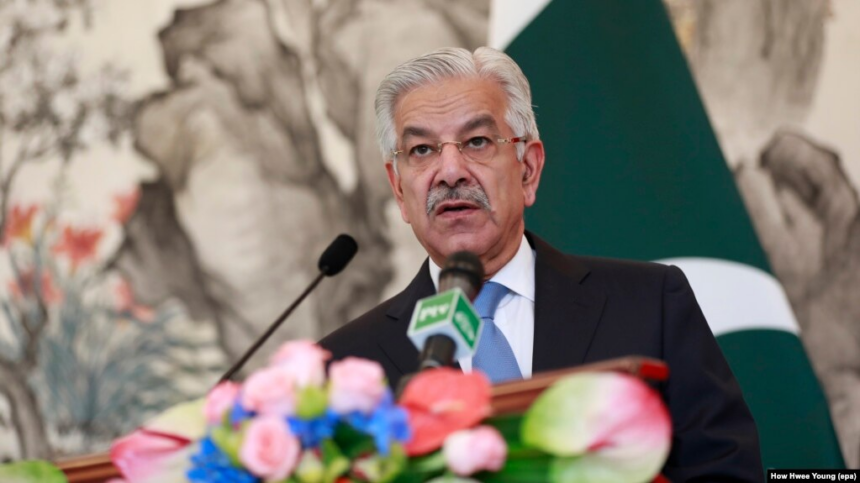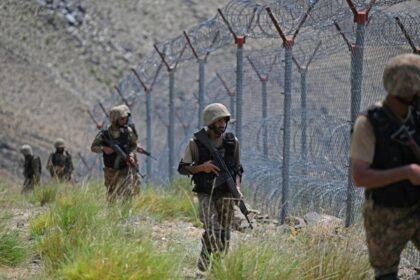RASC News Agency: In a stark and revealing indictment, Pakistan’s Defence Minister Khawaja Muhammad Asif has accused the Taliban regime of forging back channel alliances with Israel and India two nations long regarded as strategic adversaries by Islamabad. These accusations mark a sharp turn in regional geopolitics and underline the growing disenchantment in Pakistan over the Taliban’s increasingly erratic and self-serving foreign policy. Speaking during a press briefing reported by Geo News, Asif expressed frustration that despite decades of support for the Taliban including diplomatic backing, military assistance, and safe havens within Pakistanvthe group has not only failed to reciprocate Islamabad’s patronage but now appears to be aligning itself with powers hostile to Pakistani interests. According to Asif, the Taliban’s duplicity has left Pakistan vulnerable to accusations from the United States and Western allies, who increasingly view Islamabad as a “state sponsor of terrorism.”
Referencing remarks by Indian defence analyst Praveen Sahni, Asif noted that only “Israel and Afghanistan” in this context referring to the Taliban-controlled regime were backing India’s military campaign known as Operation Sandoor, launched after the April 22nd terrorist attack on tourists in Pahalgam, Indian-administered Kashmir. India attributed the assault to Pakistan-based militant elements, an allegation Islamabad has forcefully denied. Nevertheless, India carried out retaliatory strikes across the border, further heightening tensions in an already volatile region. Asif was quick to clarify that the claims did not originate from his own ministry, but from a prominent Indian journalist, thereby attempting to deflect direct diplomatic consequences. However, the insinuation is clear: the Taliban once a proxy force nurtured by Islamabad for strategic depth in Afghanistan has now become a rogue actor, unmoored from Pakistani influence and possibly pursuing clandestine cooperation with Islamabad’s adversaries.
The minister’s comments also coincide with reports of a covert visit by a senior Taliban defence official to India an unprecedented move that has fueled speculation about a secretive Kabul-New Delhi rapprochement. Although both sides have avoided public comment, intelligence sources suggest that the Taliban may be seeking new regional patrons as it struggles for international legitimacy and economic lifelines. This evolving alignment deeply unsettles Pakistan, which had counted on the Taliban’s loyalty in the post-U.S. withdrawal era. Instead, the Taliban’s refusal to curb cross-border insurgency by Tehrik-i-Taliban Pakistan (TTP), coupled with its growing engagement with India and potential ties to Israel, has prompted Islamabad to reconsider the consequences of its decades-long support for the group.
Furthermore, in the wake of Operation Sandoor, the international spotlight has returned to the fragile balance of power between India and Pakistan. The operation, launched in response to the Kashmir bombing, has underscored how regional actors once considered loyal or at least neutral are now reshaping alliances in pursuit of their own interests. The Taliban’s actions exemplify this dangerous trend. By aligning itself with forces like India and possibly Israel, the Taliban has demonstrated a willingness to abandon its ideological rhetoric for the sake of political expediency. This opportunistic behavior not only erodes what little credibility the group still holds but also exposes it as a destabilizing force in the region. Far from being a legitimate government capable of governing a nation in crisis, the Taliban increasingly appears to be a mercurial and unprincipled actor, trading allegiances for survival.
As regional tensions escalate, Pakistan’s political and military establishment is now forced to grapple with a bitter reality: the very group it helped bring to power in Kabul may now be collaborating with its enemies, thereby weakening Islamabad’s strategic position and further isolating it on the global stage.






